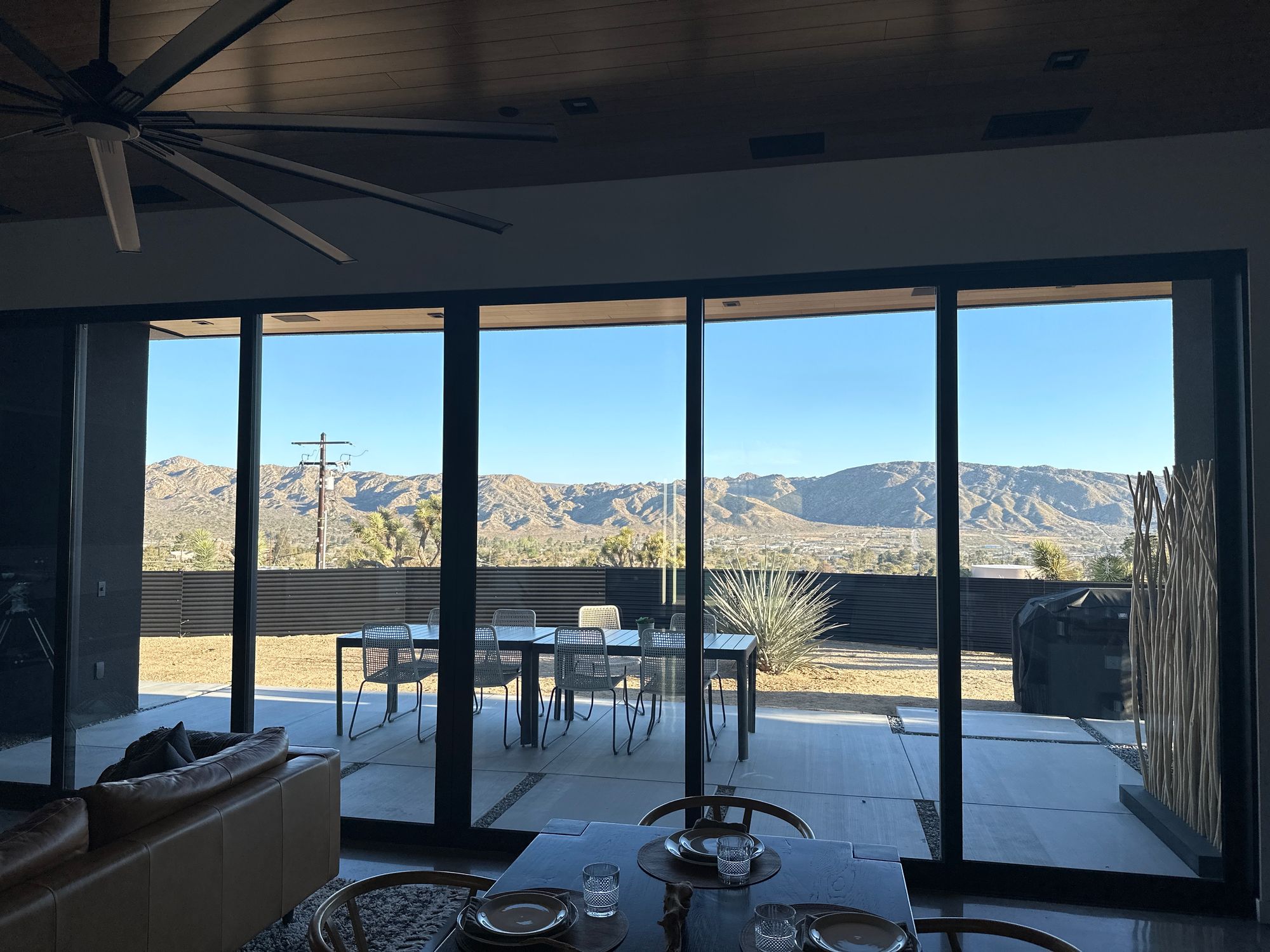Planning a personal retreat
When working on big complicated projects, I found myself first wanting to take some time for myself to strategize, consolidate my thinking, and in some ways build an energy reserve. Since then, I've made personal retreats a regular tool in my toolbox.

I love working on teams with other people. I get so much energy from tossing ideas around, building on each other's ideas, breaking them down to their smallest components, and putting them all back together again.
The act of creativity is both an individual activity and one that thrives as part of a team. Phil Jackson, coach of the Chicago Bulls, has said, "the strength of the team is each individual member. The strength of each member is the team." The more we hone ourselves, our creative skills, and our deep thinking, the more we can bring to our team and the more the team will be valuable to us.
When working on big complicated, team projects like the first version of GitHub Actions, I found myself first wanting to take some time for myself to strategize, consolidate my thinking, and in some ways build an energy reserve. Since then, I've regularly made time for myself each year to become the best member of the team I can be.
Bill Gates has done "think weeks" for years: he takes two weeks a year, often in a remote location, dedicated to reading and writing. Dozens of leaders and professionals like Steve Jobs, Susan Wojcicki, and Warren Buffet take specific time to read, think, consolidate, and recharge. I've called this time my "personal retreat" and I want to give you a framework on how you can take advantage of this specific time even if you don't have a whole week at hand.
Pick your duration
Going away for an entire week at a time may be improbable for you. As a parent, asking my spouse to watch the kids for a week while I went to go "think" wasn't something I felt comfortable with. Start by determining how much time you can allocate to your personal retreat. This could be a working day, a single night, or a whole week.
I've done about 3 days to 5 days as the normal duration of the personal retreat. It's important to pick an amount of time you can completely disconnect from your normal responsibilities. If that's 6 hours for you, that's great! I know I generally need about 48 hours to decompress from my normal life before getting solid creative work done. The most important thing is being able to completely focus on your retreat than having to jump in and out of the normal tasks of life.
Pick your location
I believe personal retreats work best when you change your location. If picking your duration is all about ensuring you can disconnect from your normal life, picking your location is all about finding a place that's going to help inspire you.
For me, that's frequently finding an AirBNB or VRBO that has tranquility and views. I find waking up and doing work while looking out on the ocean, the mountains, or the forest so grounding and inspiring that I almost always focus on the views before nearly everything else. I've recently had the pleasure of giving Wander a try for this. Their houses are meticulous, beautiful, fully stocked, and tend to be located near killer views.

Another option is using some of your hotel or credit card points to pick a hotel. This can be an inexpensive way to get out of your house and shake up the creative juices in a new location.
Finally, truly going away may not be possible. To the extent you can, set up a new space where you live. For me, this is not using my normal office workspace and hunkering down in another room in my home that I set up with a desk and workspace. The most important bit here is that you are using somewhere out of your routine to shake things up.
Plan your schedule
Only reading and writing for the entirety of the retreat is a recipe for disaster. I can only read so much before my brain turns into mush. I use a Goal, Invest, Decompress, and Recharge framework to give me an intention but ultimately a ton of flexibility.
Goal
When I kick off my personal retreats, I always start with a goal in mind. This is why I'm making this time for myself and what I'm hoping to leave with. I tend to keep these pretty broad and not terribly SMART so that I can use the three tactics below to be flexible in meeting my goals. Recently, I was starting a new role at work and my goal was to "close the chapter of my previous role and build energy for my new one".
I've found goals like "read 3 books" or "build a plan to ship this product" to be counterproductive to my Decompress and Recharge needs. The personal retreat is about both making progress toward the future but also investing in yourself and your needs at the moment.
Invest
What are some activities that you think will help you reach your goal or give you the energy to reach your goal? For me, this may be a few articles or portions of books to read. It may be physical activity like a hike near the house, exercise, or some other physical activity. It could be practicing a new hobby that I'm trying to get better at. These are all activities you are ensuring you have what you need to work on while you're on your retreat.
For myself, I tend to fill myself up with a variety of books coming at self development and leadership from different angles like The Mountain is You, The Courage to be Disliked, Leading Change, and of course Atomic Habits most recently.
Think of each activity like a trailhead: You may not take it, but if you do you'll have everything you need.
Decompress
What are some activities that will simply clear your head and give you space? These activities aren't intended to bring you closer to your goal, but they will help make your retreat feel relaxing. For me, this may be playing a video game that I normally don't get to play. More relaxing physical activities like swimming in a pool or relaxing in a hot tub. When I did my retreats during the winter, it could be reading a fiction book by the fireplace (I'm a sucker for spy thrillers).
The goal of decompression is to help you clear the whiteboard of your mind. You're not trying to make new connections or build energy: you're trying to make space.
Recharge
What are some activities that are a bit novel to you and will give you energy while on your retreat? These can be activities you enjoy doing but don't have enough time to do. They generally require a little investment and planning to accomplish well. This could be planning out the menu for your week and spending more time cooking than you usually do at home. This could be organizing your email, note tracker, or to-do list tool. This could be watching some YouTube videos that will get you excited about your goal and the next steps of your journey. (For me, I love the videos from Ryan Holiday about stoic philosophy.)
This category and tactic is the most nuanced. These are activities that feel like investments but may not be directly related to your goal. These are activities that may feel like decompression but they clearly are driving you forward so they aren't solely "clearing the slate".
I've found the recharge bucket to be one of my most important. I have a goal, I know what I want to do to meet it, and I'm going to make time to simply decompress and make space. However, with Recharge, it's about building up an energy reserve that will last beyond the retreat itself via activity, personal reflection, and personal development.
Now do it & remember it
While I'm on my retreat, I keep a big pad of paper (not a notebook) so I can write down the ideas that come to me and capture them for further refinement later. This is everything from ideas for activities, new directions with product, and leadership ideas I want to try out, to tasks I need to do when I get home. I capture important ideas and quotes from the books, podcasts, and videos I'm reading (though I tend to use Readwise for nearly all of my text highlights).
Then, on the last day, I spend some time consolidating all of my ideas into my notebook or notes tracker so I can put them to work when I get home. Using a notepad makes all of these ideas ephemeral and keeps them flowing rather than being live-curated and edited as they come up. After a few days, I can see which ideas definitely need to stick and which can float away as fine thoughts that I no longer need.
I never would have anticipated how valuable these weeks would be for me, particularly the ones that don't have any big "aha's" coming out of the other side. Even the weeks that feel the most "well, I did it" while doing them tend to build insights, ideas, and practices that I continue to use during the rest of the year.
My wife took her first retreat this year and is already planning the next one. Plan your personal retreat and let me know how it goes and what you found the most useful. I love hearing about the processes others use to invest and recharge.
Some links in this post may compensate me if you choose to click them. My recommendations are made on the basis of the quality of the products mentioned, but I want you to know that I may receive a financial benefit.